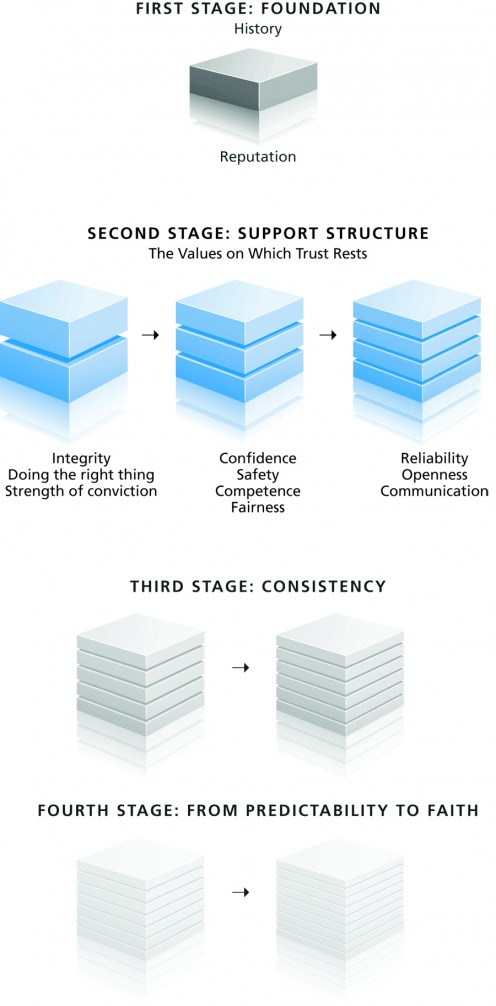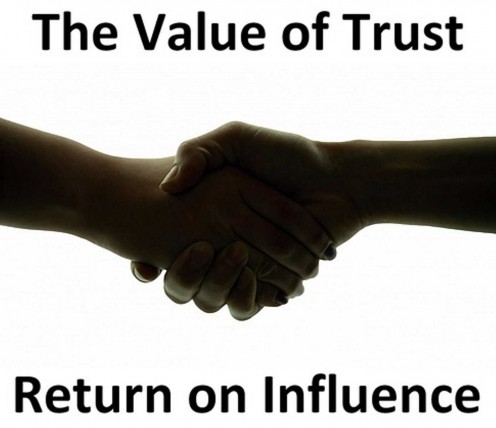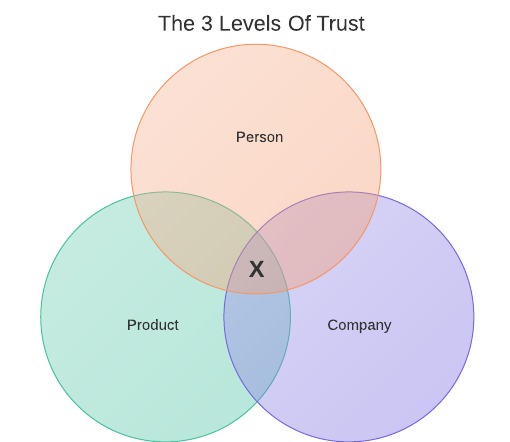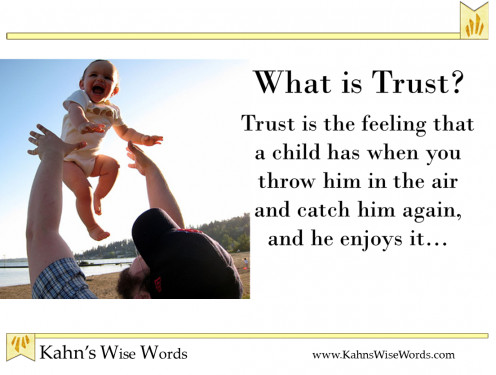- HubPages»
- Health»
- Personal Health Information & Self-Help»
- Mentally & Emotionally Balanced Living
What is Trust & the Values on Which It Rests

There are many ways to describe the concept of “trust.” For example, it might be defined as a confident expectation of something, or reliance on another person or thing, even as a strong belief in someone or something’s reliability or ability. In general, you have to be able to willingly place confidence in someone or something to properly “trust” it. Trust is often a virtue that strengthens the bond between two or more people. However, while trusting another person may not always prove to be a threat, the very nature of trust enables the trusted party to take advantage of the vulnerabilities that you willingly disclose to another.
Trust is something that must be established over time through an extensive chain of successful experiences. Also, trust is something a person must carefully build and vigorously nurtured, and continuously reinforced. In the construction of trust relationships, it is something that does not happen immediately it is a process that can be best explained as piling layers of foundation one at a time. Each layer has to bond before another layer is added. These layers are described as a step by step guide to creating trust.

The foundation which creates trust step by step is the first stage; the second stage is the support structure, which represents value, integrity, openness, and reliability. This stage leads to a trusting relationship. With the start of any relationship, people examine each other actions, whether consciously or unconsciously, rather than words to measure trustworthiness. Once the other person shows reliability, they learn to trust one another. The more values such as integrity, fairness, and honesty are shown, the more profound trust, the stronger the relationship grows.
The third stage is consistency; this step provides comfort that helps to maintain the relationship. For any relationship to survive and thrive, it must be able to expect probable actions. Consistency allows the association to go through hard times.
The fourth stage is faith; this stage is the stage that piles on top of the other three stages. This is the most critical stage because it is everything that came in and against the relationship to strengthen the framework. The faith one person has in the other goes with trust that bonds together so strong that it is tough to destroy the relationship.

Trust is unconventional, and it improves your life dramatically when earned. Considering that, we all know that it is essential for employees, investors, customers to trust business elected officials and communities, but what impact does trust have on business, and how does a company build more of it with their stakeholders? Although some may not be wholly aware of it, you unconsciously expose your weaknesses to someone you trust because you feel they will not take advantage of you.
Trust is a unique value that two or more individuals to exchange when they feel aware of what they are receiving or expecting. Trust is about knowing that the person in whom you place your trust will always be there for you, even when the going gets tough, and knowing that it will take the strongest of obstacles to shake that faith. There are different levels of trust depending both on you and the receiving party, but the highest form of all is trust in one’s self. Self-trust comes with a lot of responsibilities.
It requires you to believe in something that you often cannot see and cannot feel. It is the confidence that comes from knowing yourself. Trust in others ranges from being as simple as trusting a chair to hold you, which gives you the courage to sit down, riding a bus, and believe a bus driver to drive you to your destination safely. Trust is precious, and when you learn to trust yourself, you make yourself worthy of the trust of another. Wholeheartedly loving a partner and being real with him or her even when great temptation tries to sway you elsewhere give the courage to continue enjoying and the power and peace of mind that comes from respecting the well-earned trust.

Self-trust has a significant role to play in every relationship. Although it might seem selfish at first (it isn’t), your responsibility is to yourself first and then to your partner. Possessing self-trust with a partner gives each level of trust called knowledge-based trust. Knowledge-based trust is where both individuals have a high level of hands-on experience with each other. They both know what to expect from the other and have a slightly better idea of how the other will react to and behave in certain situations that may arise in the relationship.
Most people can identify knowledge-based trust because of a gut feeling that occurs. They know or at least feel as if they are progressing towards an end in the relationship, which often comes with an obligation to let go. Only an individual can honestly know whether or not he or she has trusted in another. The meaning of trust in a workplace carries a different level of implications. The confidence that arises in this context is called deterrence-based trust. Deterrence-based trust is a rule-based trust that prevents one person from taking advantage of someone else. Sometimes, business partners wonder whether I can build trust where it doesn’t already exist.
Most of the time, this issue becomes a self-fulfilling prophecy in that trust cannot be maintained or developed because of doubting whether a trust exists within the workplace. The deterrence-based trust that arises in this situation is false trust; each party can safely believe that the other will hold up their end of the bargain because any individual that violates the rules is subject to the agreed-upon results. All levels of trust come with their own fair share of consequences, so it is essential to understand correctly trust, how it works, and how to use it. If you treat trust well, other people will give you the respect you deserve. However, if you betray people’s trust, whether you want it to, it will return to you armed with severe consequences.

How Trusts Work - Trusts 101 - Living Trusts, Revocable & Irrevocable Trusts
What are your thoughts and opinions on the subject, "What is Trust & the Values on Which Trust Rests."
"Learning to Surrender & the Value of Trust"
© 2015 Pam Morris








